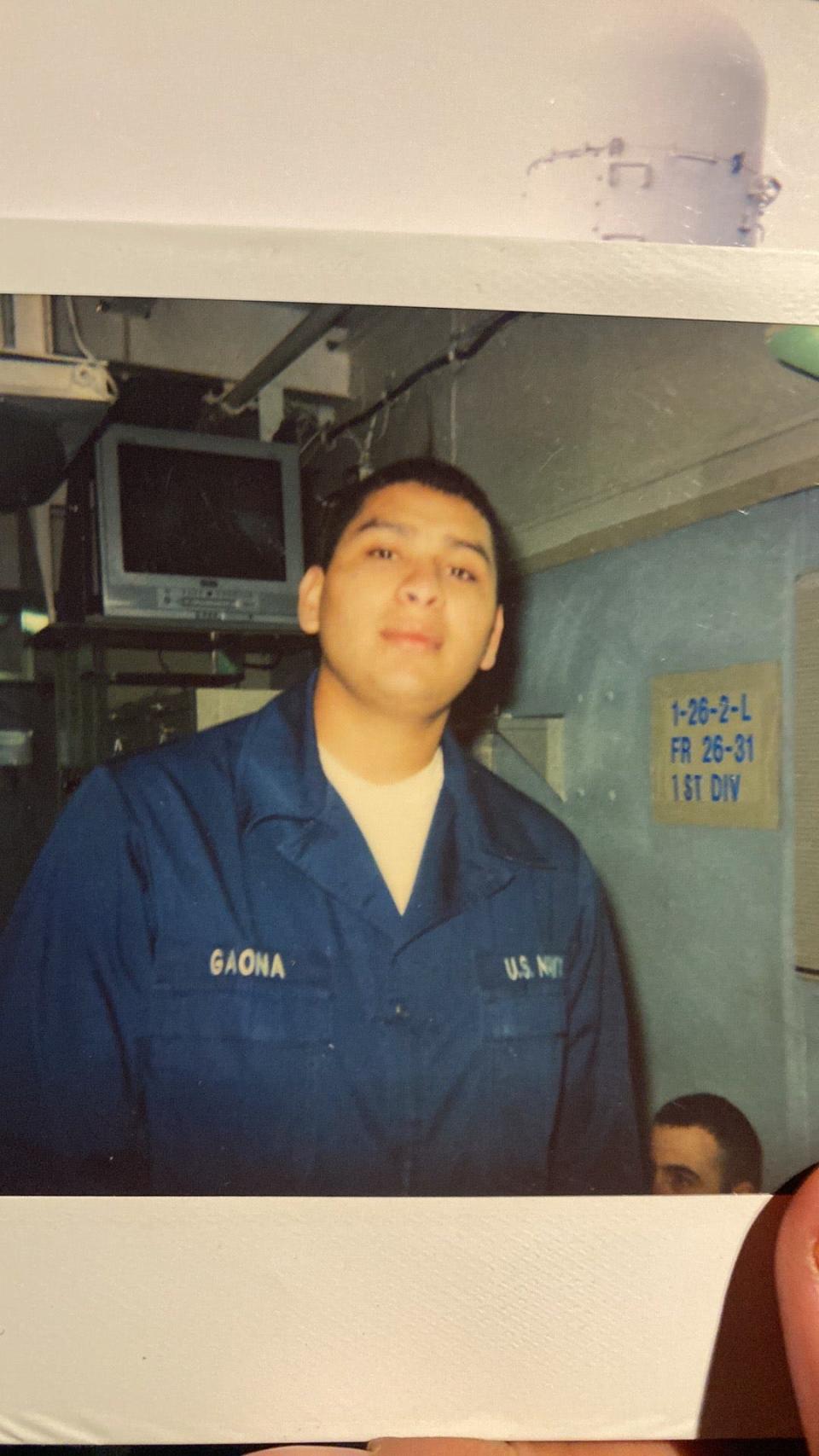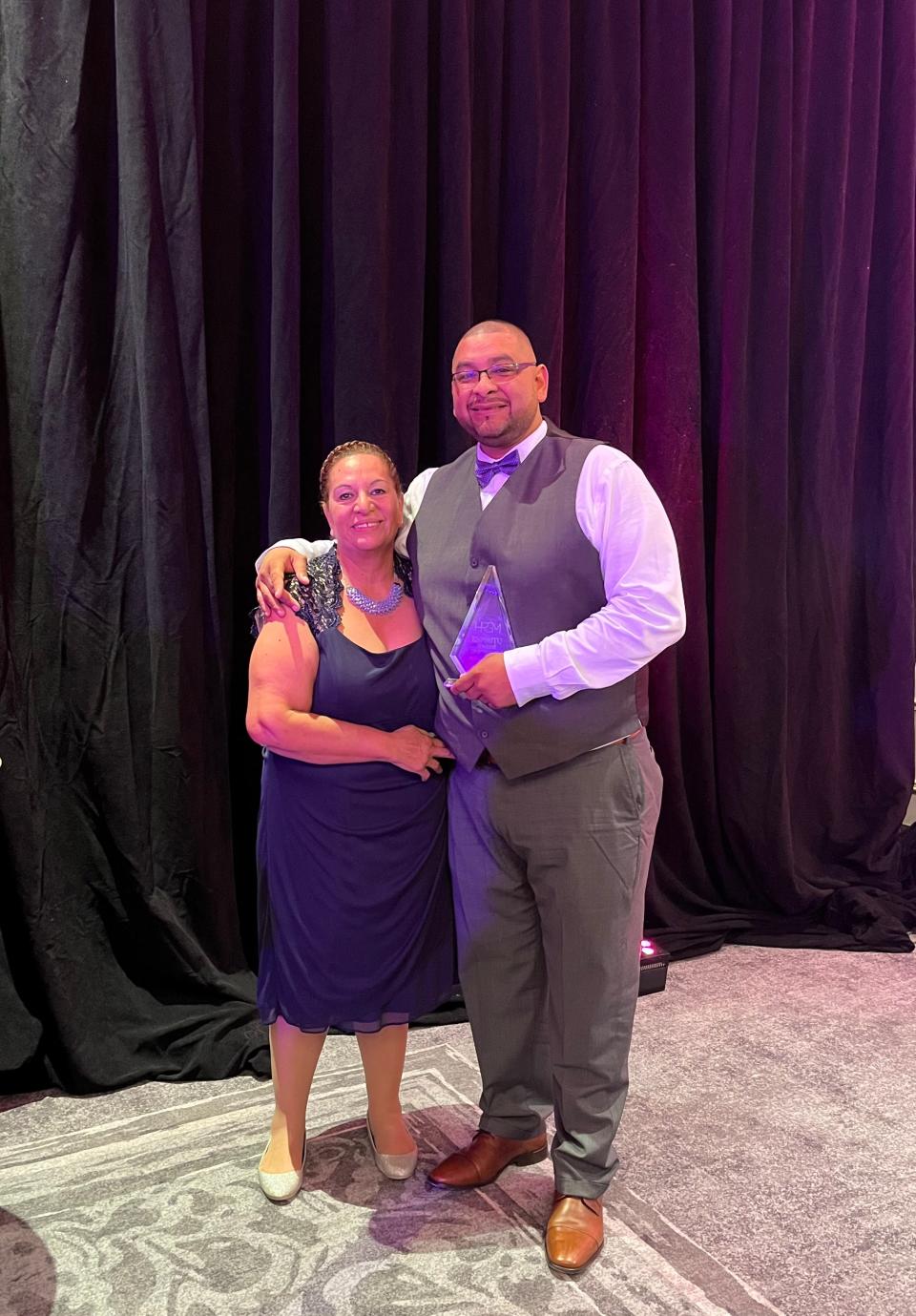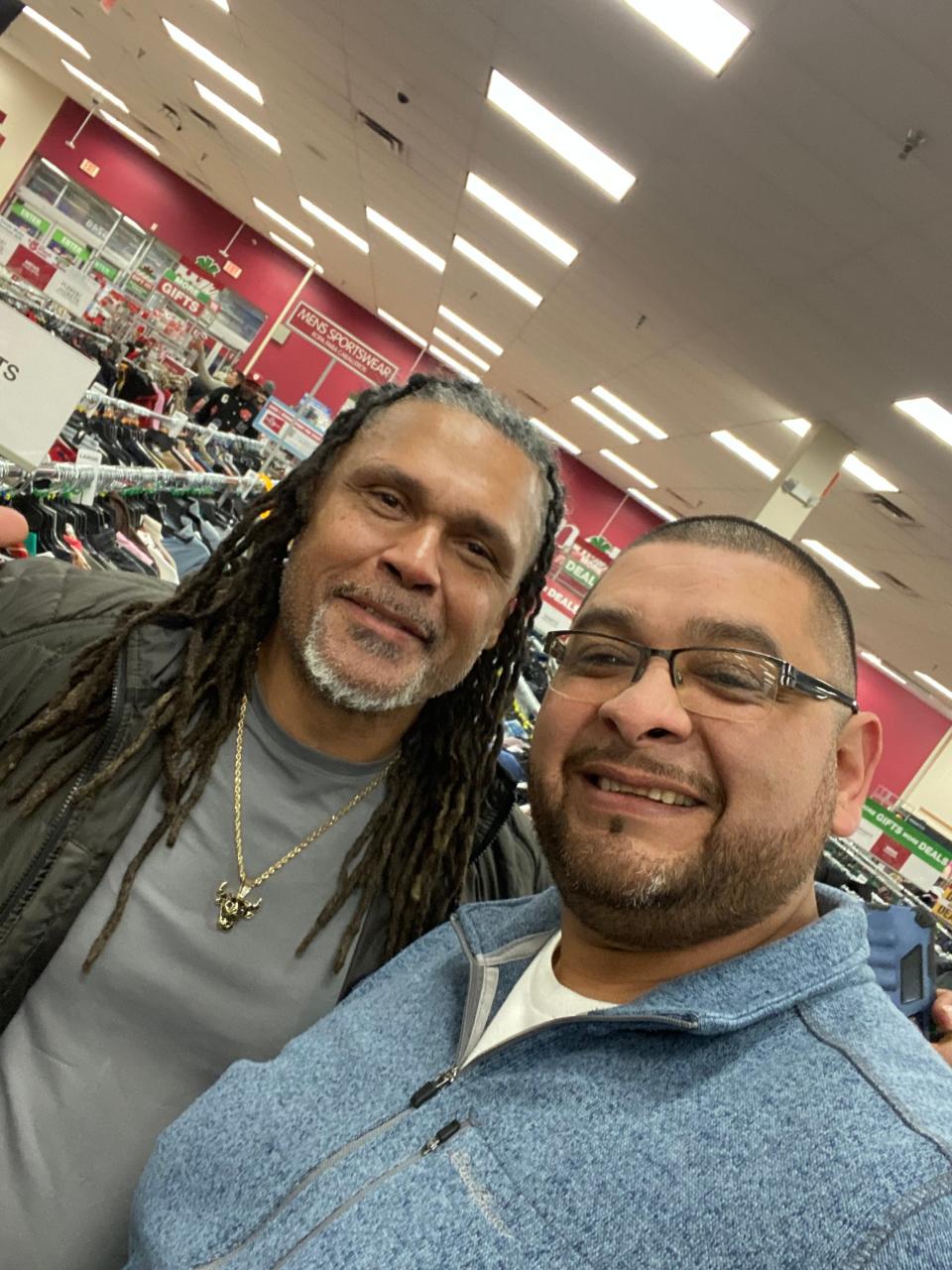Ten years. That’s how long Ruben Gaona spent in prison for his role in a drug gang that transported cocaine and marijuana from Texas to Milwaukee in March 2010.
Gaona grew up in El Paso with a single mother and five siblings. His father abused his mother both mentally and physically. Once, his father broke into his bedroom window with a gun and threatened to kill the entire family.
“We called 911 for him. After that, my mother knew she had to leave him,” Gaona said.
His mother, Maria Reyes, moved the family to Milwaukee’s south side in June 1996, making the trip on a Greyhound bus. Gaona was 15.
During his senior year at Pulaski High School in 1999, Gaona received life-changing news: he was going to be a father. Faced with limited employment options, Gaona decided to join the United States Navy for the direction he needed.
Who wins when a child is prosecuted? The governor of Virginia chose politics over people.
At first everything seemed to go well. The Navy offered a meaningful alternative to what he had seen growing up. He quickly developed a passion for it, but 45 days before he was due to re-enlist, he was told he couldn’t due to a back injury.

The Navy determined that Gaona was unfit for the sea. He was given an honorable discharge and was back on the south side of Milwaukee. At that moment he made the dumbest decision of his life. On March 17, 2010, Gaona was one of seventeen suspects charged in a drug conspiracy and money laundering case. Several of his siblings were also involved.
Despite receiving monthly visits from his family and communicating with them through letters and phone calls, the absence of their physical presence was deeply felt. Nevertheless, his mother remained a loyal source of support.
Twice a month, Reyes drove Gaona’s wife and children nearly six hours to meet him in prison. Their continued support was crucial for Gaona, as it helped him through difficult times. However, not all prisoners are lucky enough to have someone to support them, causing many to reoffend after their release.


Gaona promised his mother that he would never abandon her again.
Nearly thirteen years later, he has dedicated himself to helping people who were once incarcerated. His nonprofit, My Way Out, has managed to keep more than 600 people out of jail by providing essential services such as housing, employment and transportation. The program has a 90% success rate.
Some leave prison with only their clothes on
The effort began when thousands of inmates were released early from state and federal prisons to prevent the spread of COVID-19. Many were released with only the clothes they came with and without a proper reintegration plan to avoid going back to prison.
My Way Out provides support for things that may not be obvious to most of us. For example, when a customer needed a winter coat, the Gaona team bought the man a new one. When someone else got a job but needed reliable transportation, the team bought the man a 10-speed bicycle.
Gaona, 42, said because his team doesn’t have an office space, they can meet the customer where they are.
“If someone calls me now, I ask where he is and go to him to make it easier. We have a lot of meetings in coffee shops and in the library,” he said. “It’s hard enough for them; We don’t want to make it more difficult.”
If they can’t provide the services needed, they work with other re-entry programs to ensure clients get what they need. The program runs on donations from organizations such as the United Way, Greater Milwaukee Foundation, Bader Philanthropies, Milwaukee Bucks Foundation, Roots & Wings and others.
More than 70% of clients served are African American or Hispanic. Anthony Dodd, assistant superintendent at the Milwaukee County Community Reintegration Center, called My Way Out a valuable safety net. Addressing stable housing and employment is critical to the success of men and women, and Gaona has helped hundreds of people in this area.
Dodd said after someone has served their time, there should be a higher level of forgiveness and second chances. About 95% of state prisoners will be released at some point, with 80% placed on parole supervision.


Many people do not consider public safety when it comes to ensuring that formerly incarcerated individuals have access to stable housing, good jobs, and transportation. However, Dodd said these factors are crucial in reducing recidivism rates.
It is more cost-effective to invest resources to help individuals become productive members of society than to spend about $40,000 a year to reincarcerate them. Milwaukee County Chief Judge Carl Ashley agreed.
Prison does not cure drug addiction: Meeting my foster son’s mother changed my opinion about addiction – and my life
There are still many individuals in our society who believe that if someone makes a mistake, he or she does not deserve a second chance, even after paying their debt to society. This kind of thinking makes it even more difficult for people to secure housing and employment, the judge said.
“My Way Out is an opportunity for those who know when you’re coming out of your time. There are people here who will lift you up. We need more programs like this,” Ashley said.
Milwaukee Brewers tickets provide lasting memories for father and son
My Way Out differs from other return organizations because all its employees are incarcerated. Frank Harris Sr., 63, was out of touch with technology after serving 26 years in prison for murder. My Way Out staff helped him overcome his fears.
“They really understand what you’re going through and don’t hold your hand,” Harris said. “They know how to talk to you because they’ve been in the same place.”
Good news about criminal law: When it comes to criminal law, don’t just focus on bad news. We ignore progress at our peril.
When Harris was incarcerated, his son was only 14 years old. One thing he always wanted to do was take him to a Brewers baseball game.
My Way Out gave him that opportunity when he was released by giving him two tickets to see the Brewers play at American Family Field. Frank Harris Jr., 44, said it was an experience he would never forget.
“I’ve been to a baseball game before. I’ve just never been to my father. It was a perfect day. I don’t even remember who won the match. I know I enjoyed that time with my dad,” Harris Jr. said.
Since the game, he also treated his father to a first-round playoff game for the Milwaukee Bucks at Fiserv Forum.
“It’s tough for people after they’re released,” Harris Jr. said. “It’s harder when you don’t have a stable support system. That’s why so many people end up turning back. Programs like My Way Out give people hope so they can get back on track.”
Opinion Warnings: Get columns from your favorite columnists + expert analysis on important issues, delivered straight to your device through the USA TODAY app. Don’t have the app? Download it for free from your app store.
At an event held at Bader Philanthropies in January, Harris Sr. and other people their positive experiences with the organization.
One man talked about how the organization provided safe housing for him and his son, while another thanked Gaona for always being willing to provide help, no matter the time of day. Another talked about how the staff helped him find work, which eventually led to him getting a better job as a hairdresser.
During his speech, Gaona shared a quote he wrote five years after his sentence that changed his life. He now lives by these words: There is no such thing as ‘I can’t’ because it is just an excuse we tell ourselves to keep us from reaching our full potential.
Gaona’s story mirrors that of many clients he serves today, but he wants them to know that they have the power to create a new reflection.
James E. Causey is an Ideas Lab reporter at the Milwaukee Journal Sentinel, where this column originally appeared. Email him at jcausey@jrn.com. Follow him on X: @jecausey. For more information about the program, see James Causey’s interview with Ruben Gaona about Black Nouveau.
You can read a variety of opinions from our board of contributors and other writers on the Opinions front page on Twitter @usatodayopinion and in our daily opinion newsletter.
This article originally appeared in the Milwaukee Journal Sentinel: From Meaning to Stability: How One Man Helps Prisoners Return






